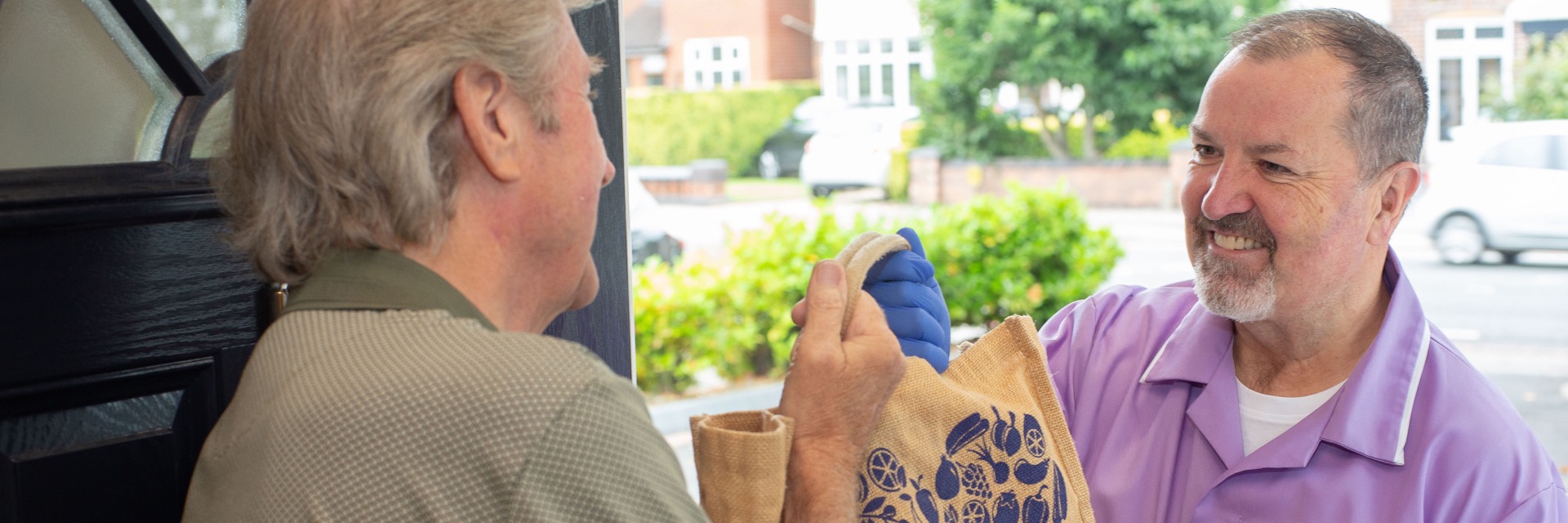Palliative Care Technology

Understanding palliative care technology
Technology can be used to assist and comfort those receiving palliative care.
Palliative care is specialised medical care that focuses on providing relief from pain and other symptoms of an illness which is unlikely to get better. Palliative care can progress to end-of-life care, but the two are different from one another. Hospice UK states that digital services are increasingly used across the health and care systems within the UK to reduce waiting times, widen access and expand its potential. Technology can range from high-tech diagnostic machines to virtual reality devices to communication tools such as WhatsApp and FaceTime.

Virtual Reality
Virtual reality can be used to distract those receiving care from any pain or discomfort. VR is a computer-generated environment which could be a park, beach or busy street that may bring joy to the user. Read our article on how VR is used within care.
Pill Organisers
The organisation of your medication is important, and some pill boxes come with an automatic opening system. These can have a ‘day of each week’ section and can help those receiving palliative care if they have trouble identifying pills from one another.
Communication
Social media and digital communication have grown a lot over the years and chatting with your loved ones is now easier than ever. The NHS says they are using technology to help those within hospitals and care to communicate better and access care easier.
Artificial Intelligence
Artificial intelligence, or AI, is being used within care to assist healthcare professionals with diagnostics and treatment. AI can include analysis of patient electronic records, predictions on pain levels and even identifying important clinical discussions.
Mobility
From smart beds that can adapt to the user and wheelchairs that are designed to be self-propelled or motorised, technology can support mobility aids. Wheelchairs, walking assistants and smart beds can be a lifeline for those who may have limited mobility.
Entertainment
Streaming platforms can show a range of engaging and stimulating content which can be a distraction from palliative care. Television and games can prompt cognitive skills to be maintained whilst also providing joy and reflectiveness for those within care.
Why use technology for palliative care?
With the help of modern-day technology, we can now support the day-to-day life of someone who needs an extra hand.

There are many benefits to assistive technology for people receiving palliative care. It can help with:
Socialising
Cognitive thinking
Sensory aid to improve mood
Independence and self confidence
Memory recollection
Mobility
Communication, speech and hearing
Emotional support
Organisation of medication
How Helping Hands can help
At Helping Hands, we pride ourselves on our ability to be adaptable to your needs. We can offer care as a live-in, visiting or respite basis.

Visiting care begins from just 30 minutes a week and our carers can come to your home at various points of the day.
Prices from £29.00
Variable prices
Call-out fee of £4.25 per visit

Live-in care offers around-the-clock support for all your needs, including palliative care.
Starting from £1,650 per week for a single person
£1,650 per week for a couple
A fully managed service
Fully regulated by the CQC / CIW
Being regulated means:
Our carers are expertly trained and qualified in providing care with a wealth of experience. We’re also regulated by the Care Quality Commission (CQC) and Care Inspectorate Wales (CIW), so we’re always on top of our game.
Guaranteed high-quality care
Peace of mind
Independent inspections
Regular development
A safe service
Regular communication